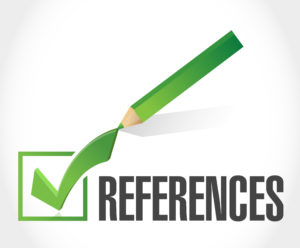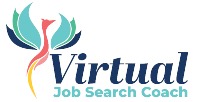One of the important tools you must have in your job search toolkit are excellent references.
I will explain why employers want references, who you can ask to be a reference for you, and why you should ask for it in writing.
Why Do Employers Want References?
Let’s talk first about why employers want references. All referencing is based on one premise: The belief that past behavior and performance is the best predictor of future performance. 
Employers perform reference checks to verify:
- Your relevant experience, skills, teamwork, and other areas of specific interest to them. Your character, trustworthiness, reputation, and credibility.
- To see if there is more to learn about you and your capabilities, or your attitude, or areas of weakness.
- How you performed and what was accomplished. Your communication, interpersonal, or management style.
- Whether you are likely to be a good fit for the hiring company, the team, or a specific manager.
- Warning flags, like inconsistencies, different people say conflicting things about you.
- Insights for how to best manage and support you if you join the team.
Who to Ask for A Reference:
 You want to have at least 3 references because that is how many most employers will usually ask for, though you can have more than 3. Ideally, employers prefer employment references. However, if you are entering the workforce for the first time or re-entering after a long absence or are new to the country and don’t have employment references, you can take a slightly different approach. Instead, you can request character references from people who can attest to your attributes, personality, skills, abilities, and attitude. This includes people such as teachers, professors or fellow students, spiritual advisors, friends, or someone you have volunteered with.
You want to have at least 3 references because that is how many most employers will usually ask for, though you can have more than 3. Ideally, employers prefer employment references. However, if you are entering the workforce for the first time or re-entering after a long absence or are new to the country and don’t have employment references, you can take a slightly different approach. Instead, you can request character references from people who can attest to your attributes, personality, skills, abilities, and attitude. This includes people such as teachers, professors or fellow students, spiritual advisors, friends, or someone you have volunteered with.
You want at least two people who are eager to talk enthusiastically about you, and to also include at least one reference from a past supervisor/manager.
You want references from people who can:
- Discuss your work habits, skills, and abilities such as: past employers, supervisors, business owners, team leaders, colleagues, and your subordinates (direct reports).
- Attest to your character traits or special/unique abilities such as: fellow-students, instructors, clients, customers, long-term personal friends, or people who know you that hold a reputable position in the community and those from agencies where you volunteer.
Here’s a list of potential reference sources:
- Immediate Supervisor or Manager

- Indirect Managers/Supervisors you frequently interacted with
- Teachers / Professors
- Coworkers / colleagues
- Direct reports / subordinates
- Senior management
- Board Director
- Someone you volunteered for or with
- Pastors / Rabbi / Reverend
- Business acquaintances / Consultants
- Vendors you do business with
- Clients / customers
- Friends
Regardless of the role you held, it is beneficial to ask for references from several sources within your work environment. If you are a Manager for example, don’t ONLY ask for a reference from your boss, ask another peer colleague, and if you are a manager or supervisor of people, ask your direct reports.
Keep in mind, your employees can speak to what type of manager you are, what makes you a good manager, what they learned from you or appreciated about working with you. This can be particularly valuable when applying for future management jobs.
Your peer co-worker can speak to your ability to collaborate on projects or with other departments or as part of the management team, how you direct/guide your staff teams to work with other department teams and/or their observations on how you manage, coach, and support your staff. Your direct supervisor will address your strengths as an employee, department manager, particular contributions you made to projects and/or company goals and objectives, and how you directed and managed your staff (if applicable). If you are in a sales-based role, ask for a reference from your favourite customer or client.
Some companies have a ‘no reference policy’. If that’s the case ask your employer if they will write a letter confirming your employment dates, job title, and a statement reflecting that they have a no references policy. (You do not want your salary stated in this letter!). The benefit of this type of letter is that it will confirm for an interviewer that you are telling the truth in that you were employed with that company in the job you mentioned and for the time period you stated and it also confirms in writing that your previous employer will not provide a reference beyond that.
Create an ‘Ongoing Reference File’:
![]() Keep all reference letters, testimonials, thank you’s, awards, performance appraisals, articles written that refer to something you did, led, or were part of – anything that validates your talents, abilities, and efforts. These provide proof of your strengths, achievements & can be used in future job searches, for promotions, performance appraisals, wage increase requests and may even assist your case if you are unjustly fired. This reference file can also be a benefit when you are having a bad day or have lost your job and need to remind yourself that you matter – that you have been valued and appreciated by others and will be again in a future job!
Keep all reference letters, testimonials, thank you’s, awards, performance appraisals, articles written that refer to something you did, led, or were part of – anything that validates your talents, abilities, and efforts. These provide proof of your strengths, achievements & can be used in future job searches, for promotions, performance appraisals, wage increase requests and may even assist your case if you are unjustly fired. This reference file can also be a benefit when you are having a bad day or have lost your job and need to remind yourself that you matter – that you have been valued and appreciated by others and will be again in a future job!
Letters of Reference:
A reference letter is a valuable tool that can help you in your future job search by providing insights & examples of what sets you apart from others and what your past employers valued the most about working with you. When you resign from a job, it’s important to ask your supervisors, colleagues, and even your employees for letters of reference that highlight your skills, abilities, attributes, work ethic, strengths & learning abilities. Some potential employers will accept a written letter of reference or recommendation in lieu of doing a verbal reference check.
I recommend obtaining letters of reference as often as possible when you leave a job for 3 reasons:
1) Your former supervisor may pass away suddenly (it happened to me once).
2) Time flies by and we tend to lose touch with people so trying to track down a former supervisor who’s moved on or retired can be difficult.
3) Accuracy – when a reference letter includes examples such as your involvement in a particular situation or project – how you made it successful or overcame obstacles or challenges in the process, or how you increased sales,
It’s best to get your employer to write your letter when it’s fresh in their mind. Asking a past employer for a letter  or verbal reference years later or even a few months later, can decrease the amount of accurate details that they include or the impact they felt in the moment that you accomplished the project. If you are in any type of service industry, don’t be afraid to ask for written testimonials from delighted customers and clients!
or verbal reference years later or even a few months later, can decrease the amount of accurate details that they include or the impact they felt in the moment that you accomplished the project. If you are in any type of service industry, don’t be afraid to ask for written testimonials from delighted customers and clients!
Don’t wait until you have an interview before reaching out and confirming who will be a reference for you. If an employer is anxious to hire you, they may not be impressed if they have to wait a couple of days while you gather your references – it makes you look unprepared. Plus, as a former hiring manager, I have been faced with the tough decision of deciding between 2 final candidates and I’ve used reference checks to help break the tie. If one candidate doesn’t have references ready for me to contact immediately, that could make the difference between who I offer the job to.
I hope these strategies and tips help prepare you to succeed in your job search. What you’ve learned here is just the tip of the iceberg when it comes to job search strategies and interview tips. To learn more, check out my YouTube channel (VirtualJobSearchCoach), where I post new content to help job seekers like you, determine, pursue, and land their dream job!
If you would like one-to-one coaching to equip you with the confidence, necessary tools, critical knowledge, and strategies to find and land your ideal job – then let’s talk! You can book a complimentary 15 minute discover call directly in my calendar at https://calendly.com/virtualstacey and let’s chat about how I can help you fast-track your job search success.


